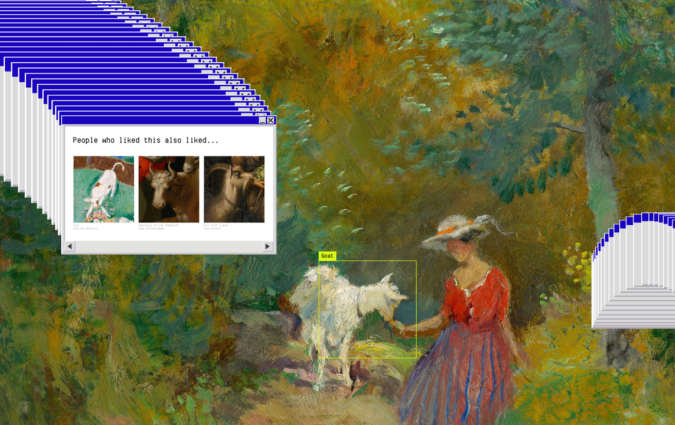Here are the APSA 2023 talks featuring researchers from the Reuters Institute

Credit: Los Angeles Convention Center
The 119th Annual Meeting & Exhibition of the American Political Science Association takes place in Los Angeles and online from 31 August to 3 September. Several Reuters Institute researchers will be attending and presenting on a range of important subjects affecting journalism including trust in news, polarisation, climate change news and news avoidance. Here are the abstracts of the papers being presented.
Trust is key: Determinants of belief in misinformation about climate change in eight countries
Thu 31 August, 10:00-11:30, Virtual
Waqas Ejaz, Sacha Altay, Richard Fletcher and Rasmus Kleis Nielsen
Science has unequivocally established the human-caused nature of climate change, yet the prevalence of climate-related misinformation persists, undermining public understanding and impeding collective action. Strikingly, existing research on misperceptions about climate change has disproportionately focused on WEIRD (Western, Educated, Industrialized, Rich, and Democratic) countries. To move beyond this, our study includes high income countries in North America, Europe, and Asia, but extend its scope to encompass countries like Pakistan, Brazil, and India. By examining the interplay of news media usage, information sources, and trust in these sources, we advance our understanding of how these factors influence misperceptions about climate change in diverse socio-cultural contexts. We conducted an online survey (N = 8,541) in Brazil, France, Germany, India, Japan, Pakistan, the UK and the US. Across countries, the strongest determinants of misperceptions about climate change were identifying as right-wing (compared to left-wing), consuming less offline news, having less trust in scientists, environmental activists, and international organisations, while having more trust in politicians, celebrities, and energy companies. Overall, trust in sources of information about climate change and demographic variables are stronger predictor of misperceptions about climate change than reported news consumption (online, offline or on social media).
Political Communication > Science, Technology, and Environmental Politics
Exposure to partisan news and its impact: Evidence from the 2022 Brazilian elections
Fri 1 September, 16:00-17:30, LACC, 406A
Camila Mont'Alverne, Amy A. Ross Arguedas, Sayan Banerjee, Benjamin Toff, Richard Fletcher and Rasmus Kleis Nielsen
Political consequences of exposure to partisan news and like-minded content are a source of concern for democratic societies, but most studies on the topic have shown that shown partisan online news has only a limited or null effect on political outcomes, but there is evidence it can impact people’s levels of trust in mainstream news. However, most of this literature analyzes the particular case of the US. We do not know about how these dynamics apply to other countries where concern about partisan content online and social division has also grown, but where people’s ties with parties are more limited or non-existent. This article, then, investigates the impact of online partisan news consumption on voting behaviour and affective polarization during the 2022 Brazilian elections, using a unique dataset with behavioural tracking data of 2,200 internet users in Brazil and four survey waves with the same respondents, conducted before, during, and after the 2022 presidential elections. We find no effects of using partisan media on affective polarization and voting choice over time, but different levels of trust in news moderate the impacts of partisan media on polarization.
Political Communication > News Media Diets and Their Consequences
Explanatory factors behind the rise in news avoidance across 35 countries
Sat 2 September, 14:00-15:30, LACC, 406B
Antonis Kalogeropoulos and Benjamin Toff
During the past five years, there have been considerable increases in the percentage of people who say they are actively avoiding news in many countries. One striking example of this trend is Brazil where the number of people who say they sometimes or often avoid news has doubled from 27% in 2017 to 54% in 2022 (Newman et al., 2022). Overall, the share of frequent news avoiders rose from 29% to 38%. In this research note, we draw on more than 200.000 survey participants of Digital News Report surveys across these 35 countries and 3 points in time (2017, 2019, 2022) paired with secondary data about each country to test possible explanations that may be behind recent increases in news avoidance. Our findings suggest that on average the rise in news avoidance is most consistent with growing reliance on social media for news rather than alternative explanations such as changes in press freedom or the COVID-19 pandemic.
Overcoming climate change skepticism among rural Americans
Sat 2 September, 16:00-17:30, LACC, 152
Benjamin Toff and Vijay Limaye
As political messages about climate change have become increasingly polarized and distrust of scientific expertise has grown, public opinion on the subject in the U.S. has also hardened. In recent years, rural Americans in particular have shown growing affinity toward right-wing populist appeals (Cramer 2016; Lunz Trujillo and Crowley, 2022), including a growing anti-intellectualism (Lunz Trujillo 2022) extending to attitudes about the scientific consensus surrounding the damaging impacts of climate change. This is the case even as rural areas face unique challenges around healthcare (Probst, Eberth, and Crouch 2019) and the environment (Armstrong and Stedman 2019), which climate change is particularly likely to impact.
This study offers unique evidence of how climate change-related messages resonate in different ways with rural and non-rural populations. We draw on results from a preregistered experiment conducted with respondents recruited in-person at county and state fairs in the state of Minnesota during summer 2022 (N = 1,273). Using a randomized intervention involving exposure to social media messages on the topic, we examine whether climate change-related appeals focused on the public health impacts of climate change may be associated with relatively higher perceptions about the threat of climate change and levels of support for federal climate change policies compared to conventional strategies, which largely focus on ballooning financial costs associated with climate change. By reaching rural populations ordinarily under-represented in online panels, we assess possible heterogeneous effects of such appeals on this distinct sub-population.
Preliminary results indicate that this this subgroup is, in fact, more receptive to public health-related messages about climate change than other kinds of appeals, although we find no significant effects with respect to support for federal interventions. Furthermore, we add to these quantitative findings by qualitatively coding respondents’ open-ended responses and present further evidence around whether different climate change messages trigger distinct associations among these different populations. Our findings have implications not only on future research on public opinion about climate change but for broader understanding of attitude formation and agenda setting in conservative, rural environments.
Science, Technology, and Environmental Politics > Combating Climate Skepticism and Pessimism
Trust in news falls as social media grows: Longitudinal data from 46 countries
Sun 3 September, 08:00-09:30, LACC, 406B
Richard Fletcher, Simge Andı, Sumitra Badrinathan, Kirsten A. Eddy, Camila Mont'Alverne, Antonis Kalogeropoulos, Craig T. Robertson, Amy A. Ross Arguedas, Anne Schulz, Benjamin Toff and Rasmus Kleis Nielsen
Across the world, platforms that offer personalized content have become increasingly important parts of how people access news, as the importance of broadcast television, radio, and printed newspapers has stagnated or declined (Newman et al., 2022).
At the same time, trust in news has fallen in some countries (Hanitzsch et al., 2017). This matters because most newsworthy events occur outside of the realm of one’s personal experiences, meaning that people’s willingness to believe the news media’s descriptions of them must partly depend on whether they are trusted. At least in theory, some degree of trust is an essential precondition for people to be informed by the news media.
But are recent changes to trust and media use linked? Does the move from direct discovery—where people primarily access news by tuning in to a specific television channel, listening to a specific radio programme, or relying on a specific newspaper, news site, or app—to an increased reliance on distributed discovery—where many people find and access news via platform services such as social media, search engines, video sharing sites, aggregators, and messaging applications—in itself influence national levels of trust in news?
Many journalists, editors, and publishers certainly think so (Ross Arguedas et al., 2022). In this paper, we rely on online survey data collected from 2015 to 2021 across 46 countries (N=485,000) to investigate whether they are right. We find that they are—at least when it comes to growth in the use of social media for news. By using random effects within-between (REWB) models specifically designed to analyse cross-sectional comparative longitudinal survey data, we find that (i) there has been a small overall decline in trust in news since 2015 in the countries covered (with very different patterns in different countries), and (ii) that—while there is some limited evidence of differences by media system—national differences are much better explained by changes in news media use. Specifically, within-country declines in television news use over time—and parallel increases in social media news use—are significantly associated with declines in trust in news. Thus, while many other factors—including interpersonal trust, trust in institutions, and political factors such as polarization and elite cues (Hanitzsch et al., 2017; Ladd, 2012; Strömbäck et al., 2020)—may also influence trust, the rise of social media as a way of accessing news seems to have contributed to current declines.
Why do changing levels of social media and television use influence levels of trust in news? In short, our argument is that television news is driven by self-selection, rooted in habit, comes predominantly from familiar brands, and often offers—for lack of better words—simplicity and clarity. News on social media, on the other hand, is often driven by incidental exposure and automated serendipity, sometimes comes from brands people don’t use actively, are unfamiliar with, or may actively dislike, and often offers—for lack of better words—complexity and confusion. This difference, we think, helps account for our findings here.
In a sense, some of the very features of television news critics have long decried (e.g., dominated by long-established “mainstream media”, little space for nuance, etc.) may have helped engender trust in news, and some of the very features of social media often held up as positive contributions (e.g., incidental exposure leading people to more and more diverse sources of news) may at the same time erode trust. The American CBS evening news presenter Walter Cronkite’s legendary sign-off “and that's the way it is” captures some of the authority television news has often assumed, in striking contrast to the diversity and disagreement often experienced on social media.
Political Communication > Trust in News: Comparative Perspectives







